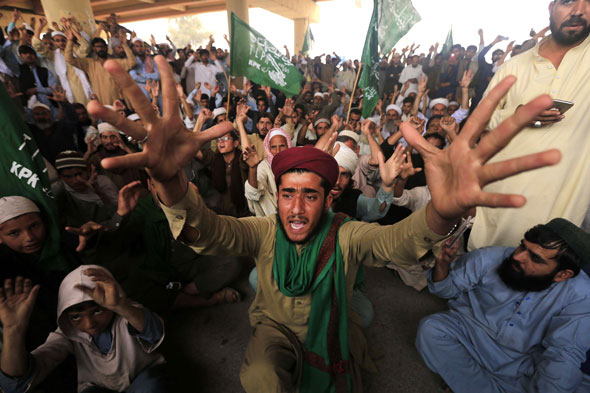
My dear brothers and sisters in the Lord,
The persecution of Christians around the world is on the rise. It is a phenomenon that is under-reported and not noticed by mainstream media. I must congratulate our own DeSales Media Group, especially our Currents News program, for their coverage of this important issue. Their coverage does bring our attention to religious persecution in all shapes and forms that is not reported by most media outlets.
Just a cursory glance of this issue can remind us of the repression that religion suffers at the hands of totalitarian governments. In a new book entitled, “Under Caesar’s Sword,” a special account of the repressions of Christians, sheds light on issues that officials from around the world have reported. Unfortunately, persecution is not limited only to Christians. In China today, we hear of the mass incarceration of Muslim believers in re-education camps since there is some fear that their thinking would be a threat to the government.
Also, we know of the difficulties that Christians, especially Catholic Churches, are undergoing as is the desire of the government not only to control religious activity, but also to make places of worship indistinguishable by removing crosses and other religious symbols. Recently, the government decreed that in certain provinces those under the age of 18 are forbidden to attend religious services or religious instruction. These are facts that are little known by the general public.
A review of the above-mentioned book states, “Specifically, the collection reiterates the necessity of creating and maintaining close, albeit often unlikely, alliances within and between religious groups. Rallying around the shared desire for freedom of conscience, rather than a specific case of persecution, can increase the size and duration of influence.”
Sometimes singularly persecuted groups cannot form alliances among themselves because of deep religious and ethnic differences. However, this is one way that people can stand up to totalitarian governments that sometimes use religion as a wedge between various communities. Just on the Christian persecution, for example, we can see how subtle the enforcement of laws, especially in six countries – Syria, Iraq, Nigeria, Kenya, Indonesia, and India – can cause great difficulty for the free exercise of religion. It is amazing to me how Catholic leaders, bishops and laity of these countries are able to endure persecution, sometimes not so visible, with great endurance.
The sacrifices made by Christians, especially Catholics, who live in these countries are truly amazing. In Pakistan, strict blasphemy laws continue to claim the lives of many innocent Christians. A nephew of two of our Pakistani priests recently was incarcerated for no reason, with the intent of causing the family to leave lands that have been in their possession for over 100 years. The treatment of Christians and Catholics around the world certainly leaves a lot to be desired and needs to be reported more often.
The United States State Department does have a commission on religious freedom which makes periodic visits to troubled spots around the world. This commission is comprised of religious leaders and other competent experts on these situations who report back to the State Department so that they might develop policies that sometimes can ease the 1998 International Religious Freedom Act. This Act was passed by Congress to promote religious freedom worldwide, regardless of creed.
I would like to give you a more personal insight into how our fellow Catholics and Christians are suffering in these lands by sharing a letter I recently received from Archbishop Samir Nassar, Maronite Archbishop of Damascus, describing the situation which has now decimated the Christian community.
He wrote, “Faced with these scenes of desolation in the Church in Syria, I, although very much the minority, cannot fall into the role of a mere spectator. She is a strong witness of the Spirit and the Light which It brings. She is the sign of a Presence and a witness in the domain of health care, education, pastoral work with the young, family support, accompanying fragile family groupings, and supporting in every way the less fortunate. All of this is done in the spirit of forgiveness and reconciliation.”
The time of Lent is an opportunity to offer our prayers and almsgiving for those who suffer. Fellow Christians and Catholics from around the world and fellow religions daily put out into the deep waters of persecution, misunderstanding, and depression. During Lent, try to remember these people in your Lenten prayers and works. If you are looking for an agency which assists the persecuted Catholic Church, I would recommend that you make an offering to Aid to the Church in Need whose main offices are in our own diocese (www.churchinneed.org).
I share with you the prayer Archbishop Nassar sent. It is by St. John Paul II.
HEAR MY VOICE O LORD
Hear my voice when I beg you to install in the
hearts of all human, the wisdom of peace, the
power of justice and the joy of friendship.
Hear my voice because I talk to you for multitudes
which in all countries and all times do not want
war and continue to pursue of peace.
Hear my voice, and give us the strength to always
answer hatred with love, injustice with total
commitment to justice, and misery sharing.
Hear my voice, O God, and grant to the world,
especially in The Middle East, your eternal peace.
